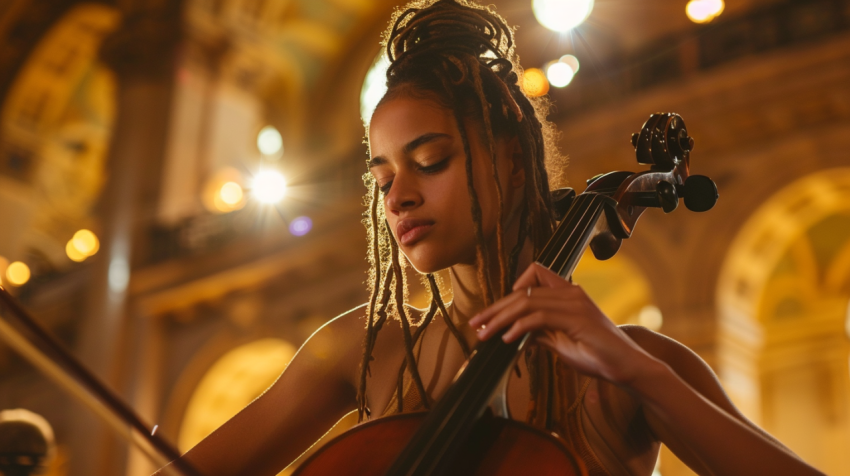








Music: The Universal Language
Music is a fundamental aspect of human culture, a powerful force that transcends language, borders, and time. It's a universal language capable of expressing a vast range of emotions, telling stories, and connecting people from all walks of life. From the earliest rhythmic beats to complex symphonies, music has always been an integral part of the human experience.
1. The Origins of Music: A Primal Instinct
The origins of music are shrouded in mystery, but it's believed to predate language:
- Early humans likely used their voices and bodies to create rhythms and melodies, perhaps for communication, ritualistic purposes, or simply for enjoyment.
- Archaeological discoveries of bone flutes and other primitive instruments suggest that music has been a part of human culture for at least 40,000 years.
- Music likely played a crucial role in early social bonding, storytelling, and cultural transmission.
2. Elements of Music: The Building Blocks of Sound
Music is composed of various elements that work together to create a cohesive whole:
- Rhythm: The pattern of sounds and silences in music, often described as the "beat."
- Melody: A sequence of musical notes that is perceived as a single entity, often the most memorable part of a song.
- Harmony: The combination of different notes played simultaneously, creating chords and progressions that support the melody.
- Tempo: The speed or pace of the music.
- Dynamics: The volume or intensity of the music.
- Timbre: The unique sound quality of a particular instrument or voice, also known as "tone color."
- Texture: How many different layers of sound are heard at once.
- Form: The overall structure or plan of the music, such as verse-chorus form.
3. Genres of Music: A World of Diversity
Throughout history, countless genres of music have emerged, each with its own unique characteristics:
- Classical Music: A broad term encompassing Western art music from the 11th century to the present day, known for its complex harmonies, intricate melodies, and use of orchestral instruments.
- Jazz: An improvisational genre that originated in African American communities in the late 19th and early 20th centuries, characterized by its syncopated rhythms, blue notes, and expressive soloing.
- Blues: A genre that also originated in African American communities, often expressing themes of hardship and sorrow through soulful vocals and a distinctive 12-bar chord progression.
- Rock and Roll: A genre that emerged in the 1950s, combining elements of blues, gospel, and country music, known for its energetic rhythms, electric guitars, and rebellious spirit.
- Pop Music: A broad term encompassing commercially successful music that is typically characterized by catchy melodies, simple song structures, and a focus on vocals.
- Hip-Hop: A genre that originated in the Bronx in the 1970s, characterized by its rhythmic spoken-word delivery (rapping), DJing, and often socially conscious lyrics.
- Electronic Music: A wide range of genres that utilize electronic instruments and technology, such as synthesizers, drum machines, and computers, to create music.
- Country Music: A genre that originated in the Southern United States, often featuring acoustic instruments, storytelling lyrics, and themes of rural life.
- Folk Music: Traditional music that is passed down through generations, often reflecting the culture and history of a particular region or community.
4. Music and the Brain: The Science of Sound
Music has a profound impact on our brains and emotions:
- Listening to music can trigger the release of dopamine, a neurotransmitter associated with pleasure and reward.
- Music can evoke strong emotions, from joy and excitement to sadness and nostalgia.
- Studies have shown that music can affect heart rate, breathing, and even hormone levels.
- Music therapy is used to treat a variety of conditions, including anxiety, depression, and pain.
- Music can also improve memory, attention, and cognitive function.
5. Music Technology: From Vinyl to Streaming
The way we consume and create music has been transformed by technology:
- The invention of the phonograph and later the radio allowed music to be recorded and broadcast to a wider audience.
- The development of magnetic tape recording led to the rise of multi-track recording and the creation of more complex studio productions.
- The digital revolution, including the advent of CDs, MP3s, and streaming services, has made music more accessible than ever before.
- Digital Audio Workstations (DAWs) have revolutionized music production, allowing musicians to create and edit music on their computers.
6. Music and Culture: A Reflection of Society
Music is deeply intertwined with culture and society:
- Music can reflect social and political issues, serving as a form of protest or social commentary.
- Different cultures have their own unique musical traditions and instruments.
- Music plays a vital role in ceremonies, rituals, and celebrations around the world.
- Music can create a sense of community and shared identity.
7. The Business of Music
- The music industry is a multi-billion dollar industry encompassing record labels, publishers, distributors, streaming services, concert promoters, and more.
- Artists rely on various revenue streams, including album sales, streaming royalties, touring, merchandise, and licensing.
- The rise of the internet and digital technologies has significantly impacted the music industry, creating both challenges and opportunities for artists and businesses.
8. The Future of Music
- Artificial intelligence (AI) is increasingly being used in music creation, production, and even performance.
- Virtual reality (VR) and augmented reality (AR) are creating new ways to experience music, such as immersive virtual concerts.
- The globalization of music continues, with artists and genres from around the world gaining wider recognition.
Conclusion:
Music is an essential part of the human experience, a powerful force that shapes our emotions, connects us with others, and reflects the diversity of human culture. From its ancient origins to its ever-evolving future, music continues to inspire, entertain, and move us in profound ways. Its ability to transcend boundaries and communicate on a fundamental level makes it a truly universal language. As technology continues to evolve, the way we create, consume, and experience music will undoubtedly continue to transform, but its power to touch our hearts and souls will remain.
Music, history of music, music genres, elements of music, classical music, jazz, blues, rock and roll, pop music, hip-hop, electronic music, country music, folk music, music theory, music production, music technology, music and the brain, music therapy, music industry, digital audio workstation, streaming music, vinyl records, live music, concerts, music festivals, top music artists, new music releases, music charts, learn music, play an instrument.

